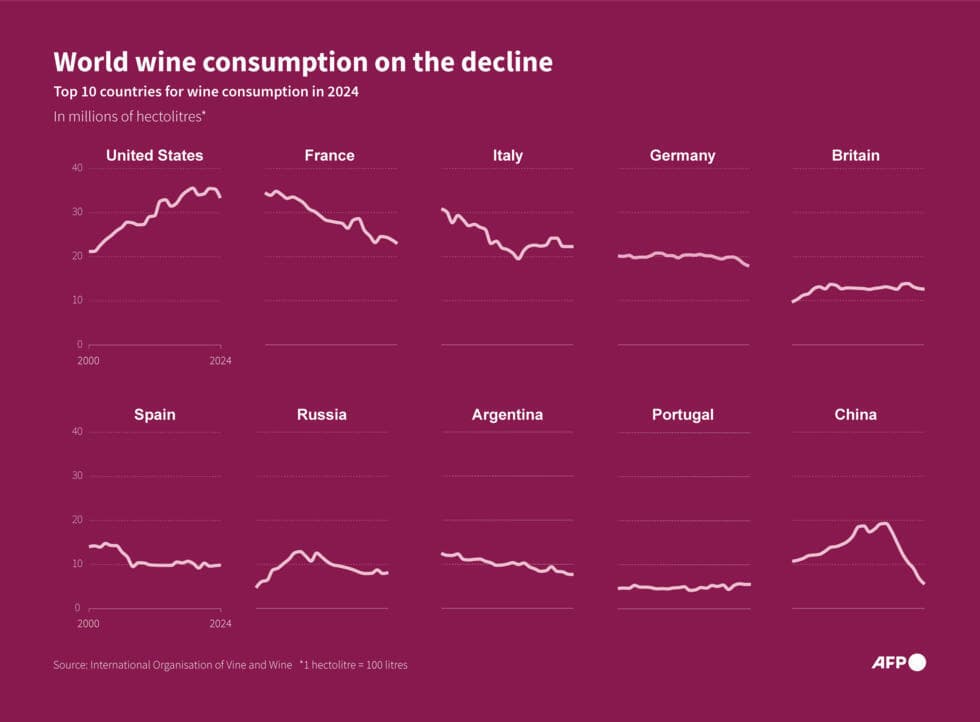Daily Wine at Lunch Becomes a Rarity as French Consumption Habits Shift

The long-held image of a glass of wine accompanying every French lunch is increasingly becoming a thing of the past, reflecting a significant cultural shift in the nation's drinking habits. As noted by Pascal-Emmanuel Gobry in a recent social media post, "> It’s not totally taboo in France, it’s not seen as crazy to have a glass of wine with lunch, but it’s also rare." This sentiment underscores a broader trend away from daily wine consumption.
Historically, wine was an integral part of French meals, deeply embedded in the country's culinary identity. However, modern lifestyles, evolving workplace norms, and increased health awareness have gradually altered this tradition. While wine remains a cherished part of French culture, its role has transitioned from a ubiquitous table drink to a more occasional indulgence.
Statistics highlight the dramatic decline in regular wine consumption. In 1980, over half of French adults consumed wine on a near-daily basis; by 2013, this figure had plummeted to just 17%. Per capita consumption has also seen a steep drop, falling from 160 liters annually in 1965 to an estimated 22.5 liters in 2024. This represents an over 80% decrease in per capita consumption over six decades.
Several factors contribute to this change. During the working week, many French professionals avoid alcohol at lunchtime due to workplace regulations and the desire to maintain alertness in the afternoon. Economic considerations and the growing popularity of alternative beverages, such as craft beers, spirits, and non-alcoholic options, also play a role. Younger generations, in particular, show less inclination towards traditional wine consumption compared to their elders.
Despite the overall decline in volume, there's a discernible trend towards "drinking less, but better," with consumers often opting for higher-quality wines on special occasions. This evolution suggests that while wine's daily presence at the French table may be fading, its cultural significance as a symbol of conviviality and fine dining endures, albeit in a more selective capacity.